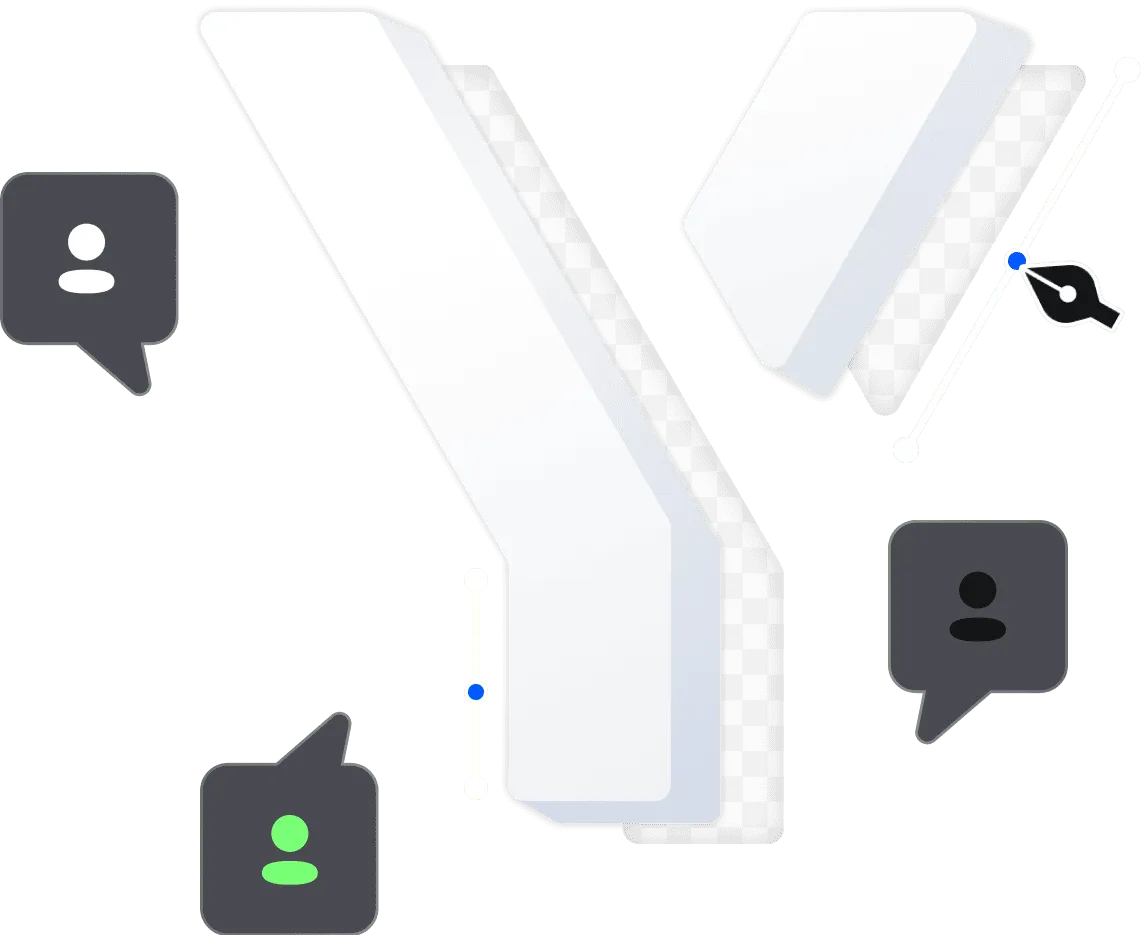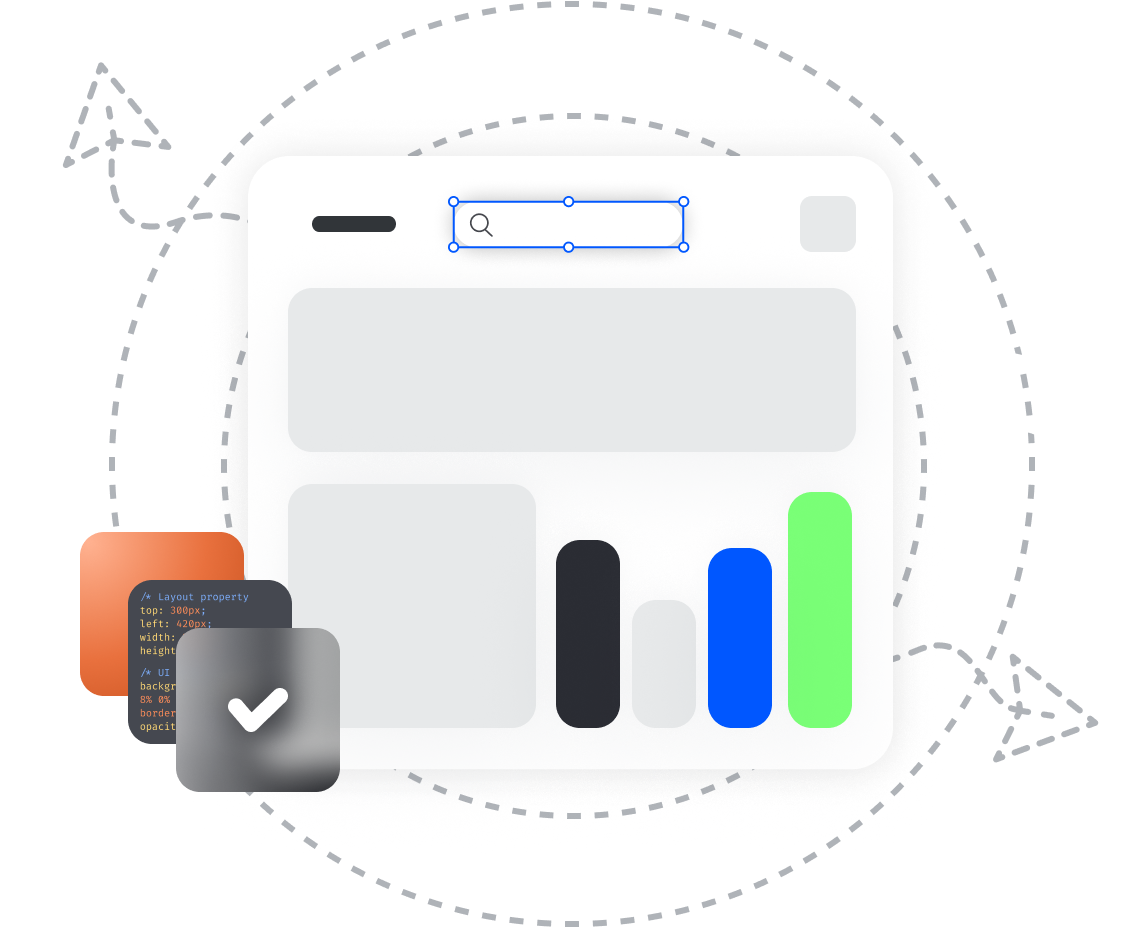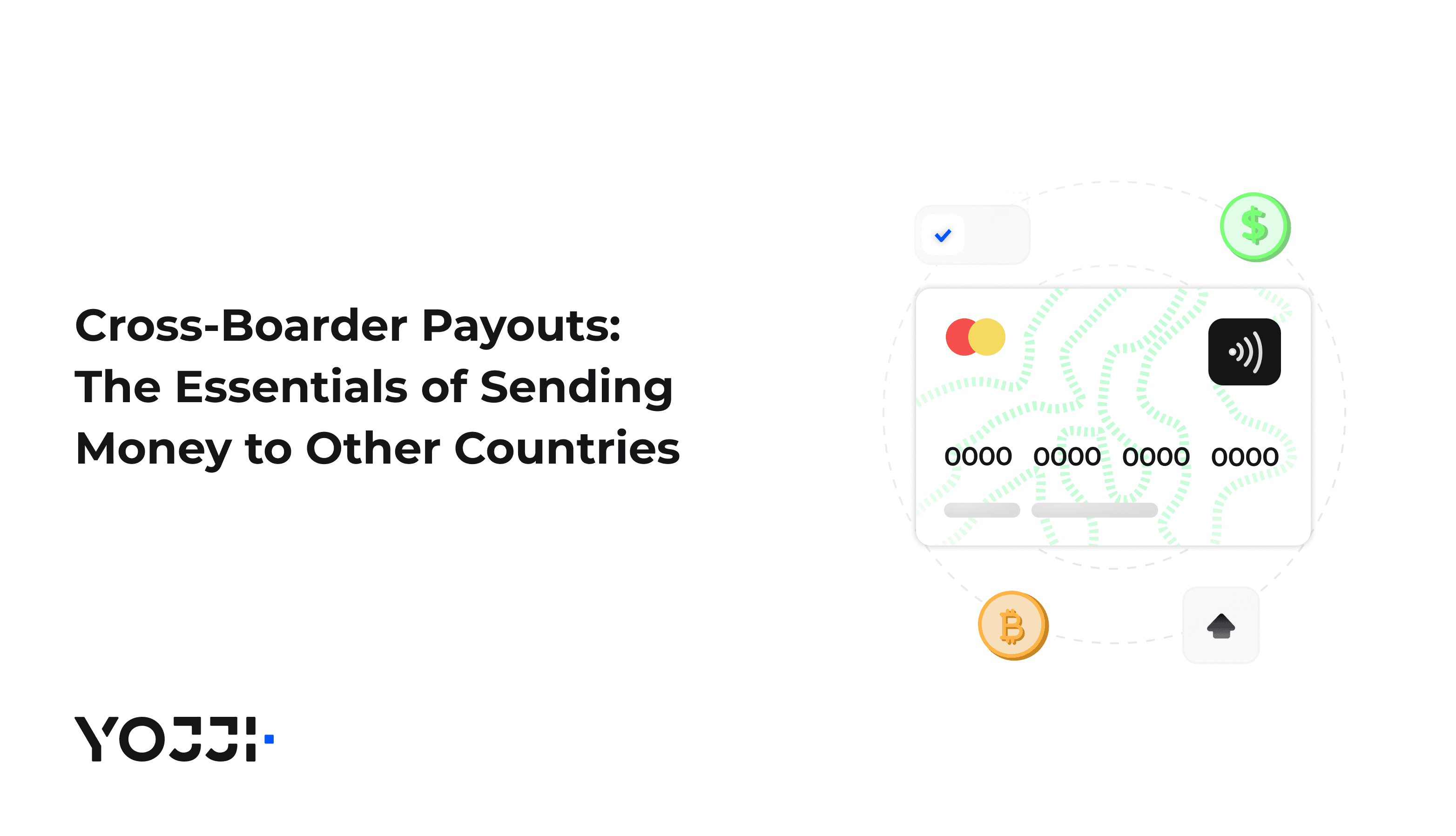Website RFP Essentials: How to Begin Development Cooperation

No modern business can survive without a solid online presence in 2024 and beyond. Don’t have a website? A great idea would be to hire a reliable software development partner to help you build a unique and user-friendly website that will leave your competitors at a disadvantage and ensure your brand stands out. The fun begins at that point. You don't want to encounter a subpar seller with a dubious reputation, do you? That's not what anyone wants. For this reason, you might need to familiarize yourself with the definition of a website RFP and the submission procedure.
As a full-cycle software development company, Yojji receives quite a few website RFPs from different companies asking either to redesign their existing website or build a new one from scratch. Some of those documents are well-structured and easy to follow and provide all the information we need to reply with a good proposal. As for other RFPs, well, they could have been better.
Knowing how to make a proposal request for a website is essential if you want to engage a professional vendor to create one for you. We'll walk you through every step of writing a strong RFP for your website in this post. In addition to learning what should be included in an RFP, you will also learn how to evaluate potential suppliers to see if they are a good fit for your project.
Crafting a strong RFP is about building clarity and trust from the very start. It’s an opportunity to communicate your vision and invite partners who truly align with your goals. A well-thought-out RFP lays the groundwork for meaningful collaboration and impactful results.
Website RFP in a Nutshell
A request for proposal for website development is an official document with the help of which a company interested in the services of web developers solicits business proposals from them. An RFP contains all the functional and non-functional requirements of a website, outlines existing issues (if there are any), and defines business objectives. The document basically serves as an invitation to make a bid on a particular web development project. Fun fact: every RFP involves an average of 9 people to complete.
Being common practice, the RFP submission allows you to reach out to multiple vendors and provide them with your project requirements and expected perspectives. They in turn can draw a full picture of how much time and how many resources it will take to implement your project. If the web development RFP is written correctly, you will be provided with several proposed solutions from different agencies. They will describe the scope of work, the cost of your website, and timelines. After the exchange, there’s usually a session of questions and answers both sides take part in.
The first and foremost task of any web development request for proposal is to make the right impression on potential vendors. If you succeed during this stage, you will get yourself a good deal. The best website RFPs are consistent and clear. You don't have to know all the tech sides of the process to write a good website development request-for-proposal. After all, the tech part should be on the shoulders of web developers, not yours. Besides, a lot of web development companies offer briefs, questionnaires, and special worksheets to help you figure out what should be included in an RFP.

A Step-by-Step Guide on How to Write a Website RFP
As with any official document, you need to stick to a certain structure when you are composing a website development RFP. Below you will find a typical structure of an RFP for website design and development:
Project Overview
The beginning of the journey, which is going to lead you to a perfectly built website, lies in describing your project to potential vendors in one brief paragraph. This section is called "The Project Overview" and should contain information about who you are and why you are submitting this RFP. Being the opening statement, this section carries the biggest value influencing the decision of the readers regarding whether or not the whole document is worth reading. On top of that, depending on how well your problems and goals are explained in the project summary, vendors will be deciding if they are interested in and capable of undertaking the project.
Read also: Navigating the Money Transmitter Licenses World: Do You Need One?
Company Background
The next section of your website RFP is a brief description of your organization. Pay special attention to the word 'brief' here. There's no need to write the whole history in detail. Attractively introduce your company by describing its workflow, culture, values, vision, the industry it operates, etc. Perhaps, vendors who are reading your RFP have never heard of you before, so this is your chance to make a good first impression and get them interested in the project. Moreover, since you are submitting an RFP for website development, you either don't have a website at all or have a bad existing website. Anyways, unless there's an informative article about your company on Wikipedia, how else will potential vendors find out about you?
Your Website Target Audience and Core Goals
The first section partly touches on your project goals and problems you need to solve with a new website. It is time to expand this topic by focusing on what outcome you expect and what goals you want to accomplish by bringing this project to life. Your project objectives should come out of your business objectives. For instance, you aim at increasing sales which is why you need to create a more convenient website so that it would be easier for visitors to buy goods. Speaking of website visitors, you should be aware of what categories of people your website targets. If any target audiences have a higher priority, mention this information in an RFP. Assigning a specific goal conversion—that is, the action you want visitors to take on your website—to each group of website users is also a smart idea. It goes without saying that you are more likely to achieve your goals if you are clear about what you hope to achieve from the project.
Project Volume and Deliverables
 While going through the sections of our example of an RFP for a new website, you finally find the one where you should list the services you are looking for. Your main task at this point is to describe the scope of the project and deliverables. Some organizations only want a website design, while others additionally look for SEO services and PPC campaigns. For example, if this is an RFP for website design and development or website redesign, your requirements may look like in the list below (along with short descriptions, of course):
While going through the sections of our example of an RFP for a new website, you finally find the one where you should list the services you are looking for. Your main task at this point is to describe the scope of the project and deliverables. Some organizations only want a website design, while others additionally look for SEO services and PPC campaigns. For example, if this is an RFP for website design and development or website redesign, your requirements may look like in the list below (along with short descriptions, of course):
- Web development (front-end and back-end coding)
- UX/UI, graphic design
- SEO
- Content building
- QA and testing
- Project management and execution
- Hosting
- Maintenance and support
If your request is to build a website, the deliverables you should expect are wireframes, a sitemap, and designs. It is better if you know the differences between expected deliverables so that there won’t be any surprises from vendors.
Sitemap
UX (user experience) plays a vital role in how effective your website is in the eyes of the users. The way all pages and blocks of the website are organized influences whether or not users will be able to find what they came for. That’s why it makes sense to include a sitemap when writing a website’s RFP. Think about what main pages you would like to have on your website and what navigation schema would be the best fit. The main task here is to come up with the most efficient sitemap so that users can find the information they need as quickly and easily as it is possible. Trust us, no user wants to spend hours figuring out where a particular website section is. If they can’t find it quickly, they will just leave. If building a sitemap on your sounds like a huge challenge, you may leave this task to vendors. You can just make an approximate list of pages you want your website to have i.e. Homepage, Services, Contact Us, Blog.
Technical Requirements
Here comes the heart and soul of your RFP for a new website – the section that describes all the functional requirements for your project. Make a list of any tech requirements you want your website to have such as the CMS solution (WordPress or something else?), payment processing, the preferred programming language for the backend, etc. If you are planning to start an online store, you can mention an eCommerce platform. In case there should be any third-party integrations, also list them in this section. There is a golden rule here, “You may not know all the technical requirements and that’s ok, just make sure you have included the ones you do and leave the rest to the vendors”. If you are more tech-savvy, then describe every detail of your website functionalities. This section of the website’s RFP is crucial because it affects the assessment of the scope of work and prices from the perspective of your vendors.
Timeline and Crucial Deadlines
 To estimate how much time it will take to build a website is quite difficult, given that one vendor can cope with the task in two months while the other one needs more time. Sharing information about your schedule and the deadlines you must meet is therefore crucial. Suppose you want to launch a website by the end of February, but you would like to have the homepage finished by February 2nd because of a significant conference. Make sure you mention all the important milestones and deadlines in your project. This will help vendors decide whether or not they will be able to complete a project within the timeline you have provided.
To estimate how much time it will take to build a website is quite difficult, given that one vendor can cope with the task in two months while the other one needs more time. Sharing information about your schedule and the deadlines you must meet is therefore crucial. Suppose you want to launch a website by the end of February, but you would like to have the homepage finished by February 2nd because of a significant conference. Make sure you mention all the important milestones and deadlines in your project. This will help vendors decide whether or not they will be able to complete a project within the timeline you have provided.
Budget Range
Your RFP for web development has to include a budget you have. Can you imagine buying a house without letting know your real estate broker what amount of money you are counting on? This question was rhetorical of course. That’s a whole different story when a broker knows your limits and therefore can find the most suitable option for your budget. It is the same with web development. It is highly recommended to provide vendors with the budget range (the amount of money you are willing to pay for the services). You can also mention additional services for which you can offer a separate budget.
Why is mentioning your budget important? This short section will save you time and the time of vendors who are way over your budget. As a result, you only get proposals from contractors who can bring the most value for the money you offer.
Proposal Submission Format and Criteria for Selection
It will be much easier for you to come up with the right decision regarding which vendor to cooperate with if you standardize the format of proposal submission. Be open about the criteria you are going to use when picking a vendor. Is it their portfolio and relevant projects that carry the most value in terms of your decision? Or will you look at the experience of web developers as the main decisive factor? Whatever it is, be upfront about what things will influence your decision.
Wrapping up
As scary as it looks at first, writing a top-notch website RFP is possible if you follow the structure we have provided above. Be clear about your goals and be vocal about your vision and expectations. When your RFP for web development is crafted with potential vendors in mind, success is inevitable. Keep in mind that writing an RFP takes time but it always pays off. If you have any questions or want to send us a website RFP, please contact us here.

FAQ
Yojji successfully delivered the project within schedule. They demonstrated excellent project management via weekly sprint demos and promptly made adjustments based on the client's feedback. Their responsiveness and collaborative attitude were key elements of their work.

5.0
Yojji was an instrumental part of the client’s team, working closely with them to achieve the product’s success. The team was very collaborative and timely, and their performance was amazing. Additionally, their resources were experienced, professional, and enjoyable to work with.

5.0
Yojii is impressive both in quality of development work as well as their commitment. Strong focus on delivery, highly technical personnel, flexible approach that allows for rapid development. Strong processes that allow for solid controls.

5.0
We’re very happy with the way that Yojji works, which is why we’ve spent so much money and engaged them for such a long time. We treat them as employees in regard to responsibilities and expectations, and they haven’t disappointed us.

5.0
As a company, we find Yojji to be excellent development partners - we cannot recommend them more highly and will be very happy to continue working with them in the future.

5.0
They are really nice people with excellent technical backgrounds.

5.0
We used Agile project management methodology and were in contact with the team and project manager daily.

5.0
They all had a super positive outlook and were dedicated to getting the work completed to a high standard.

5.0
Yojji has delivered an accessible product with thorough consideration for the client's requirements. Users have commented on the platform's user-friendliness and speed. Moreover, the team is easy to communicate with and provides frequent updates. Their development and design skills are impressive.

5.0






